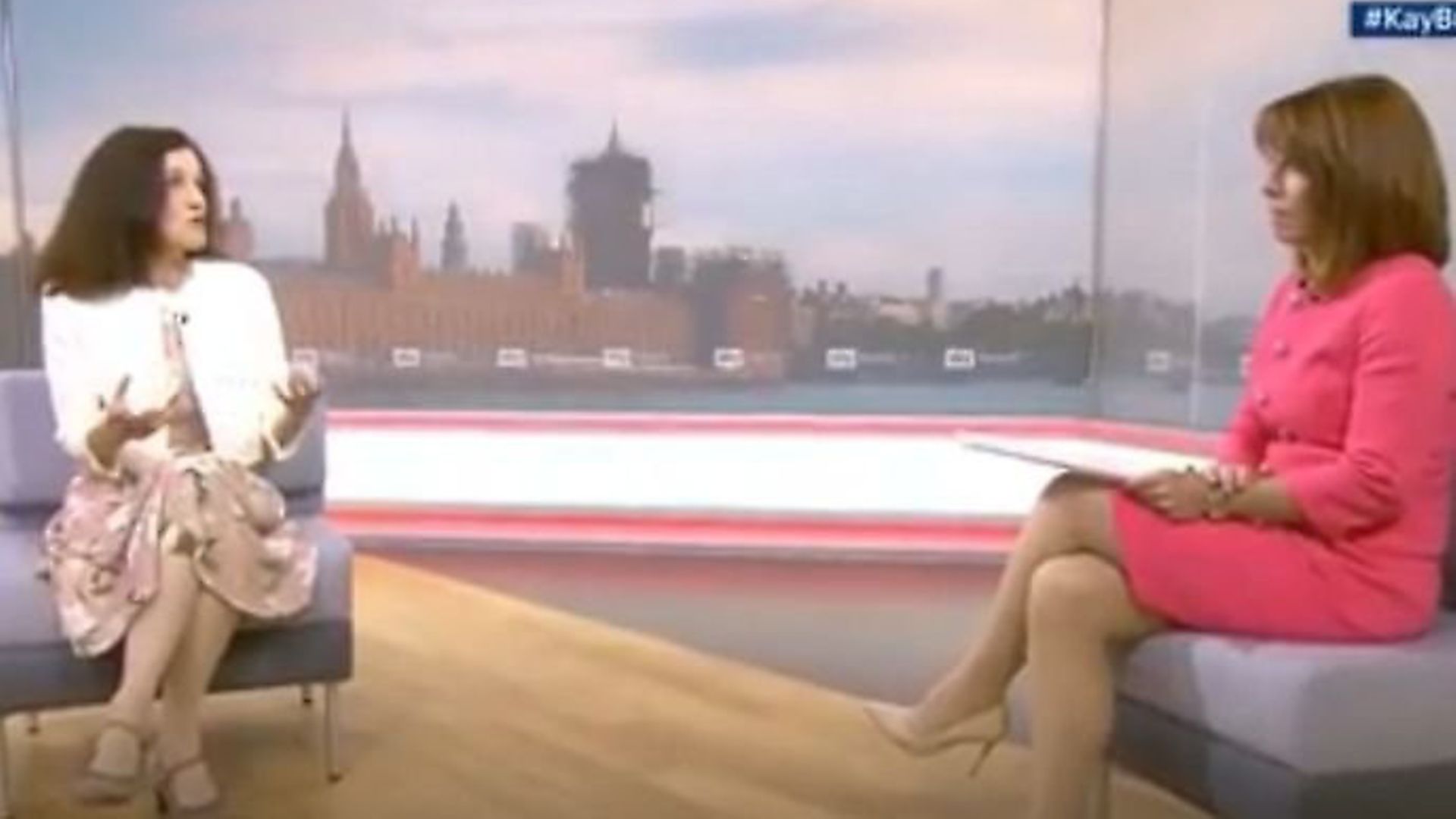
A Tory former minister has said Boris Johnson’s Brexit bill currently moving through parliament ‘arguably isn’t a violation of international law’.
Former Northern Ireland minister Theresa Villiers insisted the government was not breaking international law because it had not yet invoked the legislation.
Villiers comments come as a group of Tory backbenchers prepare to rebel against the government’s internal market bill which will allow ministers to unilaterally interpret the Northern Ireland Protocol in the Withdrawal Agreement.
The Guardian reports that up to 30 Tory MP could vote for an amendment being put forward by Conservative MP Bob Neill that would force ministers to seek parliamentary approval before implementing the legislation.
On Tuesday, incumbent Northern Ireland minister Brandon Lewis admitted changes to the bill would ‘break international law in a very specific and limited way’, causing outrage among MPs and legal professionals.
Many have said the bill, which is due for second reading on Monday, risks turning the UK in a ‘pariah state’.
Appearing on Sky News’ Kay Burley @Breakfast show, Villiers said it was wrong to assume the legislation broke international law.
‘Arguably this isn’t even a violation of international law,’ she said as Burley butted in pointing out former attorney general Geoffrey Cox, a former QC and barrister, said it was.
Villiers began talking over Burley suggesting there were ‘other evident lawyers’ capable of examining the bill.
She then said the newly-added clauses were not illegal because they had not yet been exercised.
‘For a start, these powers haven’t actually been exercised yet so there is certainly no violation of international law until they are.
‘There’s an argument about if powers under the bill given to ministers are exercised then there might be a violation of international law but the important thing is that we cannot have a situation where Northern Ireland and its status in the United Kingdom is altered in a profound way as it would be if there was a full customs border between Great Britain and Northern Ireland.’
One user wrote on Twitter: ‘Parliament approved the Withdrawal Agreement Bill that contained the Northern Ireland protocol. This is the ‘deal’ that Boris Johnson stood on in the last general election. Everything in the Withdrawal Agreement has been democratically approved.’
Another claimed the government ‘has already changed the status of Northern Ireland as a consequence of the Treaty’.
A third wrote: ‘Well that’s the deal that Johnson negotiated & signed. That’s the deal that the electorate voted on in the General Election, so you have a democratic mandate. Yes it’s a dreadful deal, but it’s your deal on which you were elected, so get on with it…’
In an article in The Telegraph on Saturday, Johnson argued the legislation acted as a safeguard against reported threats by the EU to impose a customs border in the Irish Sea. Reports have circulated that the EU has threatened to leave the UK off its third party list of countries for food, effectively making it illegal to ship produce into the region from mainland Britain.
The accusation sparked a staunch rebuttle from chief EU negotiator Michel Barnier who swept aside the assertions and called on Johnson to ‘stick to the facts’.
‘Protocol on IE/NI is not a threat to the integrity of the UK. We agreed this delicate compromise with @BorisJohnson & his gov in order to protect peace & stability on island of Ireland. We could not have been clearer about the consequences of #Brexit,’ he tweeted on Sunday.
‘Sticking to facts is also essential. A case in point: the EU is not refusing to list the UK as a third country for food imports (SPS). To be listed, we need to know in full what a country’s rules are, incl. for imports. The same objective process applies to all listed countries.’
His British counterpart, David Frost, shot back, tweeting Downing Street had been told Britain would not make the list.
‘I hope the EU will yet think better of this. It obviously makes it no easier to negotiate a good free trade agreement and the solid future relationship which we all want.’









